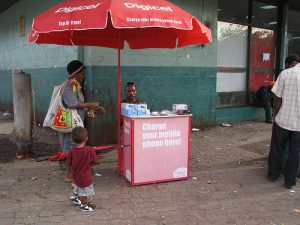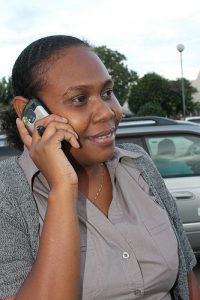Memo #194
By Danielle Cave –
(For questions, contact Jenny Hayward-Jones jhayward-jones [at] lowyinstitute.org)
 Next month, Australian Foreign Minister Bob Carr will make his maiden visit to Papua New Guinea (PNG), Australia’s nearest neighbour and second largest recipient of Australian foreign aid. This visit comes 10 months after the then brand-new foreign minister threatened PNG with sanctions following suggestions from within the PNG government that national elections might be delayed. Not surprisingly, these threats did not go down well with Papua New Guineans. But ironically, Foreign Minister Carr can take partial responsibility for inspiring a new, digital generation of Papua New Guineans to engage in public discussion.
Next month, Australian Foreign Minister Bob Carr will make his maiden visit to Papua New Guinea (PNG), Australia’s nearest neighbour and second largest recipient of Australian foreign aid. This visit comes 10 months after the then brand-new foreign minister threatened PNG with sanctions following suggestions from within the PNG government that national elections might be delayed. Not surprisingly, these threats did not go down well with Papua New Guineans. But ironically, Foreign Minister Carr can take partial responsibility for inspiring a new, digital generation of Papua New Guineans to engage in public discussion.
Carr’s threats to “condemn and isolate” PNG on March 14, 2012 created a social media storm on Facebook and Twitter (using hashtag #PNG). Australia’s foreign minister had unwittingly triggered probably the most inclusive public policy debate in PNG on PNG’s relationship with Australia.
PNG, along with other countries in the Pacific Islands region, is in the midst of a digital revolution.
Telecoms reform has led to a mobile phone explosion. In 2007 there were only 160,000 mobile phone subscriptions in PNG. Today that figure is approaching 2.5 million subscriptions, dispersed across seven million people, meaning that more than one in three Papua New Guineans have mobile phone access. Five years ago only one in 20 people in PNG had mobile phone access.
What makes PNG’s digital revolution so exceptional is that the country’s influx of mobile phones has coincided with the global rise of social media. Internet-enabled mobile phones are leapfrogging traditional barriers to communications technology such as remoteness, cost, and availability. Affordable mobile phone access is fuelling social media growth and allowing Papua New Guineans to engage in public discussions and form online networks. PNG’s blogosphere is filling the gap left by a tiny and poorly resourced newspaper industry in holding institutions accountable for their actions.
Unprecedented access to conversation and debate through social media is enabling people to influence and promote political and social change. This was on display earlier in April when an estimated 10,000 people marched to a stadium in PNG’s capital, Port Moresby, to protest proposed delays to the national election. The public protest was largely coordinated and sustained using Facebook and Twitter.
About the Author:
Danielle Cave – Research Associate, Myer Foundation Melanesia program, Lowy Institute for International Policy

Mobile telephone service in a place where not everyone has electricity in their house. (Source: kahunapulej, Flickr)
Links:
- ‘Digital Islands: How the Pacific’s ICT Revolution is Transforming the Region‘, the Lowy Institute for International Policy. (By Danielle Cave)
- Politics in PNG: It’s a man’s world, The Interpreter, Lowy Institute for International Policy. (By Danielle Cave)
- Australia’s Pacific Strategy (part 2), The Interpreter, Lowy Institute for International Policy. (By Danielle Cave)
- Why Australia’s Security Council bid was a mistake, Inside Story. (By Danielle Cave)
Related Memos:
- Our other Memos about Australia
